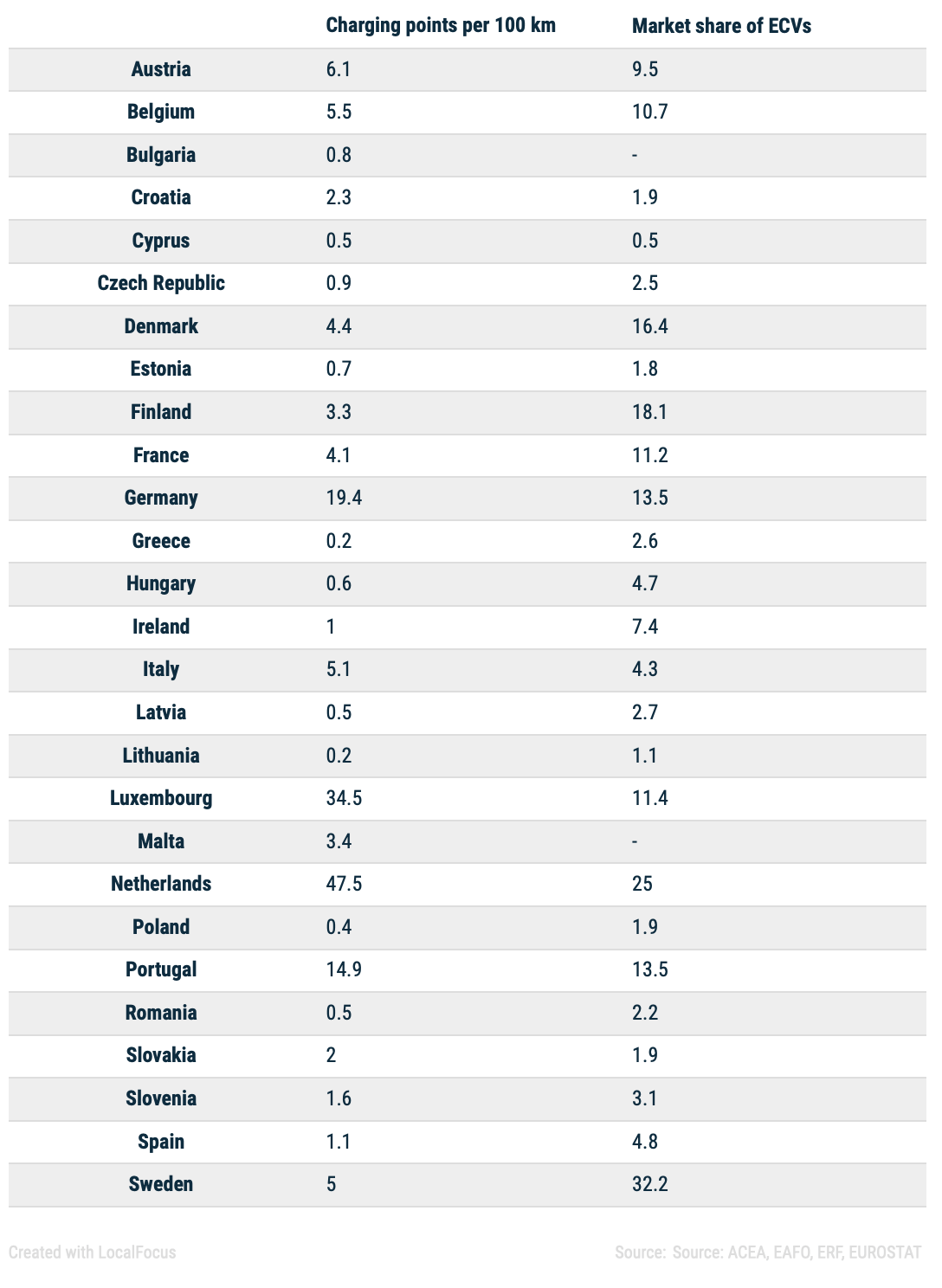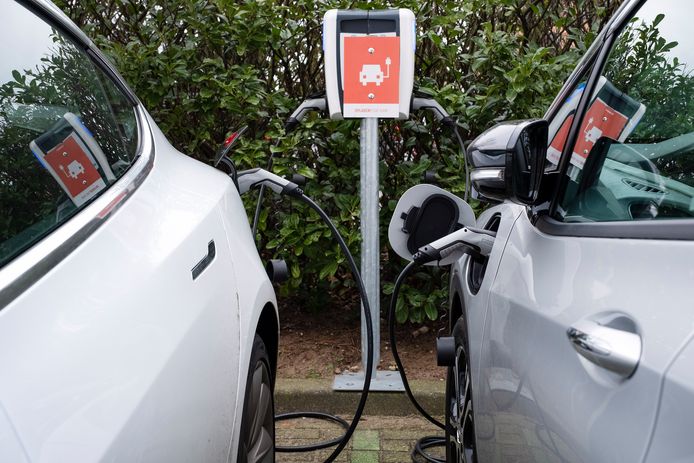The "serious lack" of charging stations for electric vehicles on European roads will prevent consumers from switching to cleaner or zero-emission vehicle options, a European car federation has warned.
According to new data from the European Automobile Manufacturers’ Association (ACEA), there are several EU countries that fail to provide even one charger for every 100 kilometres of key roads, including motorways, state, provincial and communal roads.
“Consumers will not be able to make the switch to zero-emission vehicles if there are not enough charging and refuelling stations along the roads where they drive,” said ACEA Director-General, Eric-Mark Huitema on Thursday.
Just four EU countries - the Netherlands, Luxembourg, Germany and Portugal - have more than ten charging points per 100 km of road. Belgium ranks in sixth place, with 5.5 charging points per 100 km of road.
Meanwhile, citizens of Greece, Lithuania, Poland and Romania still have to travel more than 200km to find a charging point.
"The advances made in a few Western European countries are encouraging, but should not distract us from the dire state of the charging network in other EU countries," he added.
Challenging targets
In July, the European Commission published its Fit for 55 climate package, including the proposal for an Alternative Fuel Infrastructure Regulation stating that by 2030, CO2 emissions from new cars should be down by 55% from 2021 levels.
This is up from the 37.5% target for 2030 set only three years ago and means that European car manufacturers will have to produce and bring to market millions of electrically chargeable cars over the next few years to meet this new target.
"While we appreciate the introduction of much-needed binding targets for charging and refuelling stations in each member state, they will need to be strengthened significantly if we want to meet our climate goals," Huitema said, adding that we "cannot expect people in Poland and Romania to be willing to buy an electric car," if they have to travel so far to charge them.

EU countries' number of charging points per 100 km. Credit: ACEA
He stressed that massive progress on infrastructure deployment will also have to be made across the EU in a "very short timeframe," and that the European Parliament and the Council will have to put the right conditions for e-mobility in place during the upcoming negotiations on Fit for 55.
Belgian charging infrastructure
In Belgium, regional governments are recognising the need to improve charging infrastructures if a switch to lower emission vehicles is to be sustained.
In Flanders, a €30 million project involving a call for semi-public charging infrastructure received 220 project proposals, accounting for about 9,000 charging point equivalents, including in car parks at restaurants, bars, supermarkets, but also petrol stations.
"We want to offer the certainty to drivers of electric cars that they will always be able to charge close by," said Flemish Minister of Mobility and Public Works Lydia Peeters.
Installing a charging station will result in a tax reduction of 45% and the project can qualify for subsidies up to €300,000, if the charging infrastructure is supplied with green electricity and is publicly accessible for at least ten hours a day.
Companies are also being given an extra incentive to install charge points, of which there are more than 5,000 in the region so far, as they will receive a 200% tax deduction.
Meanwhile, Peeters has put out a call to charging station operators to register for the project call for ultrafast chargers along motorways and regional roads, a project that will receive €10 million.
"We must reduce our CO2 emissions. Electric vehicles make an important contribution to this and to stimulate this we need to provide sufficient charging infrastructure," said Peeters, adding that the response rate to the call shows a "mental shift towards sustainable electric driving."

